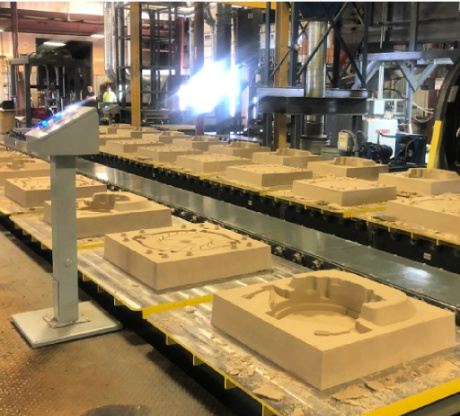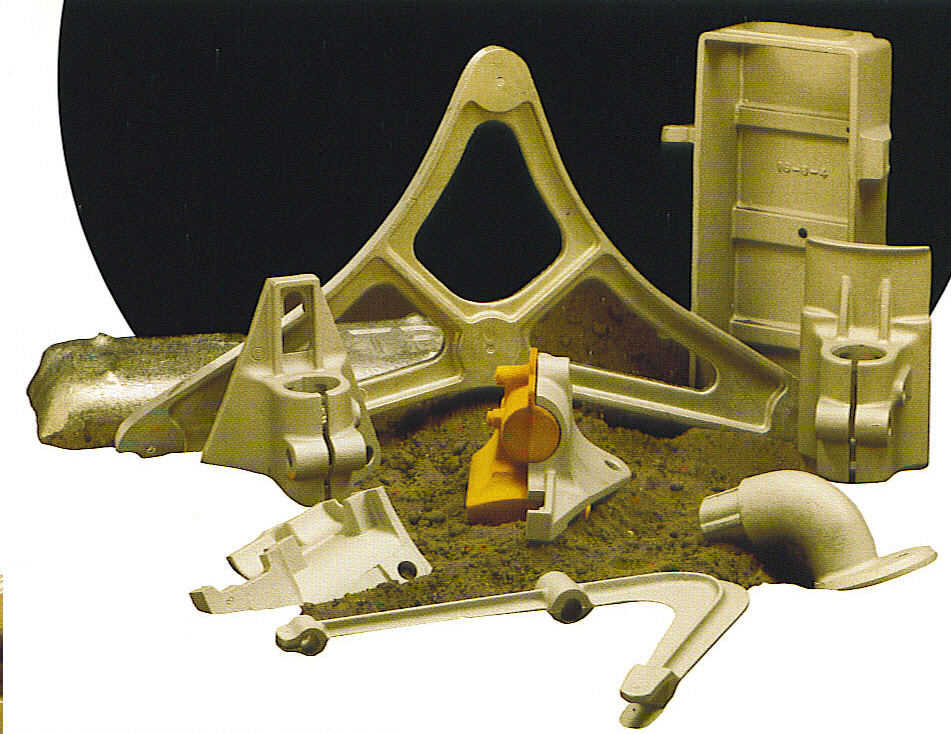Top 10 reasons to choose Wisconsin Aluminum Foundry for your project
Wiki Article
Understanding the Function of Aluminum Foundry in Creating High-Quality Metal Products
Aluminum factories are important in the manufacturing of top notch steel products. They use various casting techniques, such as sand and pass away spreading, to achieve accuracy and resilience. With rigorous quality control procedures in location, these centers ensure that their products fulfill market standards. As markets progress, the function of Aluminum shops proceeds to adapt. This elevates concerns about future developments and sustainability techniques that may redefine their effect.The Aluminum Casting Refine: Methods and Technologies
The Aluminum casting procedure has evolved considerably, including different techniques and innovations that boost effectiveness and product quality. Commonly, approaches such as sand spreading and die casting were predominant; nonetheless, developments have actually presented processes like investment casting and low-pressure die casting. These innovations allow suppliers to accomplish complex layouts and tighter resistances, reducing material waste and enhancing general efficiency.In addition, the combination of computer-aided style (CAD) and simulation software enables more specific modeling and screening, ensuring that possible problems are determined early in the manufacturing cycle. Furthermore, developments in alloy formulations result in enhanced mechanical homes and corrosion resistance
These developments not just streamline production yet also promote sustainability by decreasing power usage and exhausts. As the market continues to accept brand-new innovations, the Aluminum casting procedure remains a critical component in producing high-grade steel products that meet varied market demands.
Applications of Aluminum in Various Industries
Light weight aluminum's flexibility and favorable buildings make it a beneficial product across different markets. In the automobile sector, Aluminum is widely used for its lightweight features, contributing to boosted gas efficiency and performance. The aerospace industry also benefits, as aluminum's high strength-to-weight ratio improves aircraft style while preserving safety criteria.In construction, Aluminum is preferred for its longevity and resistance to rust, making it optimal for home window structures, roofing, and structural elements. The product packaging sector leverages aluminum's non-toxic nature and recyclability, especially in food and beverage containers, making sure safety and security and sustainability.
Furthermore, the electric industry employs Aluminum for its excellent conductivity in circuitry and transmission lines. The consumer products sector uses Aluminum in products ranging from cooking area utensils to electronic devices, highlighting its versatility. Aluminum plays an important role in boosting functionality, effectiveness, and sustainability throughout varied applications.
Benefits of Utilizing Aluminum Over Other Metals
While numerous steels are used in various applications, Aluminum stands apart due to its distinct combination of properties that supply a number of benefits over various other materials. Its light-weight nature greatly reduces transport costs and energy consumption, making it perfect for markets such as vehicle and aerospace. Light weight aluminum's exceptional corrosion resistance enhances durability, expanding the life of items and lowering upkeep needs. In addition, it shows high thermal and electric conductivity, making it appropriate for electric and thermal administration applications.The metal's pliability allows for intricate forms and complex styles, providing versatility in manufacturing processes. Light weight aluminum is 100% recyclable without loss of high quality, promoting sustainability and lowering environmental influence. These attributes, integrated with its relatively affordable compared to other steels, setting Aluminum as a preferred choice throughout various fields. On the whole, the benefits of Aluminum add to its raising popularity in the manufacturing of top notch metal items

Quality Assurance Steps in Aluminum Foundries
Quality assurance procedures play an important function in the Aluminum Foundry procedure, guaranteeing that the final items fulfill strenuous market criteria and client expectations. These procedures generally start with material examination, where raw Aluminum is assessed for pureness and make-up. Once the spreading procedure begins, temperature control is vital; keeping ideal molten metal temperatures prevents defects such as porosity and shrinking.Additionally, non-destructive screening (NDT) techniques, including ultrasonic and radiographic examinations, are used to find interior imperfections without harming the spreadings. Aesthetic assessments are also carried out at different phases to determine surface area flaws.
In addition, adherence to established top quality monitoring systems, such as ISO standards, is vital for keeping uniformity and traceability throughout the production procedure. Routine audits and worker training on high quality requirements add to a total society of quality, making sure that the items not only meet yet exceed customer expectations in efficiency and sturdiness.
The Future of Aluminum Foundries: Patterns and Sustainability
As the Aluminum Foundry sector evolves, emerging fads and a concentrate on sustainability are reshaping its landscape. Enhancing need for sturdy and lightweight products in industries like auto and aerospace drives innovation in Aluminum spreading strategies. Advanced innovations, such as synthetic intelligence and automation, are boosting manufacturing effectiveness and precision while minimizing waste.Sustainability is ending up being a critical concern, triggering factories to implement environmentally friendly techniques, including reusing Aluminum scrap and making use of renewable resource sources. The change in the direction of circular economic situation concepts encourages shops to minimize environmental effect while satisfying customer expectations for lasting products.
Additionally, regulative pressures are pressing the market towards cleaner operations, promoting collaboration in between manufacturers and environmental organizations. As these patterns merge, the future Wisconsin Aluminum Foundry of Aluminum factories will likely be characterized by a dedication to sustainability, efficiency, and high quality, ensuring their relevance in an affordable market.
Regularly Asked Questions
What Are the Ecological Influences of Aluminum Foundries?
Light weight aluminum factories add to ecological impacts through energy consumption, greenhouse gas discharges, and prospective air and water contamination. Furthermore, mining bauxite for Aluminum can lead to environment devastation and soil deterioration, impacting local environments.

Just How Do Foundries Guarantee Worker Security During Production?
Foundries execute strenuous safety procedures, consisting of safety tools, ventilation systems, and normal training. They conduct threat analyses and preserve safety standards to reduce hazards, making sure a safer working atmosphere for employees throughout the production process.What Qualifications Should an Aluminum Foundry Have?
An aluminum Foundry ought to possess qualifications such as ISO 9001 for quality management, ISO 14001 for environmental management, and OSHA conformity for safety and security requirements. These accreditations guarantee adherence to market regulations and commitment to quality and safety and security practices.Exactly How Does Aluminum Recycling Affect Foundry Workflow?
Aluminum reusing considerably improves Foundry procedures by offering an economical raw product resource, reducing energy consumption, and lessening environmental impact - Wisconsin Aluminum Foundry. It likewise urges lasting methods, allowing factories to maintain competitiveness in a quickly advancing marketWhat Are Common Defects in Aluminum Castings?
Usual issues in Aluminum castings include porosity, shrinking, inclusions, and surface flaws. These concerns can emerge from inappropriate mold layout, inadequate pouring techniques, or contamination during the melting and spreading processes, influencing general item quality.
Report this wiki page